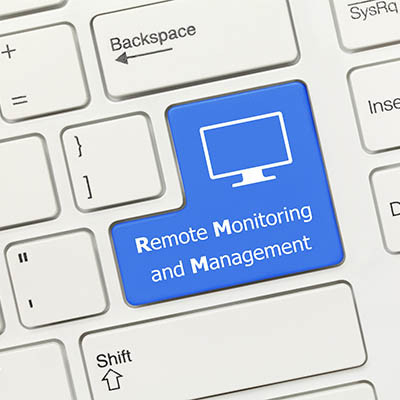JS Business Solutions Blog
Before we even get into small business technology management, it’s worth noting that your typical SMB is already handling a lot. IT isn’t as simple as adding new hardware or downloading a new application; it’s managing an entire technology ecosystem that needs to operate and interact with each other. Let’s examine what goes into small business IT and what you should prioritize as a business owner.
When we call ourselves a managed service provider (MSP), it still isn’t common knowledge what we mean by that. Perhaps the simplest way to describe our role is to call us an outsourced IT support provider, but even this definition falls short of the value we can offer. To remedy this, we wanted to review what one of our clients expects (and rightly so) to receive from a partnership with us.
Nowadays, a business can’t really get by without using technology in some fashion, and wherever technology is involved, it greatly helps to have a reliable resource on hand to keep it functioning as expected. This is the role of a managed service provider, and while a partnership with one can be a great business asset, this is predicated on the value that the Managed Services Provider (MSP) actually provides. Let’s go over a few reasons that a MSP is a good resource for small and medium-sized businesses, and how you can identify the best option for you.
How much technology does your business use day in and day out? More likely than not, it’s a lot, and we’d bet good money on the fact that you could be doing more to manage it. That said, it’s not always clear how to go about doing it, especially if you don’t have any in-house IT talent to handle this considerable responsibility. With managed services, you can overcome this challenge. Let’s go over what these are and how they work.
While reliable technology support has always been important, the sudden and widespread adoption of remote work by so many businesses has made it an essential component for an organization’s success. However, for your team members to have technology that continues to serve them as they do so, it is important that they are able to receive the same support as they would in the office.
Bad news—thanks to four flaws in Microsoft Exchange Server software, over 60,000 individuals and organizations have had their emails stolen by a cyberespionage unit based in China, with over 30,000 of those targeted being in the United States. Let’s review what has taken place up to the time of this writing, and what can be done about it.
We talk a lot—a lot—about “best practices” regarding IT and technology. However, it has come to our attention that not a lot of people necessarily know what this means, especially when it comes from an MSP. We wanted to take a few moments and go over what best practices are, and why it is important that they have a presence in your business’ IT.
We’re always talking about the importance of keeping your software up to date. It is the very best way to avoid the vulnerabilities that can cause data breaches. When the Department of Homeland Security tells organizations to patch their software, however, it is urgent. This is exactly what has happened recently regarding the world’s most utilized Internet browser, Google Chrome.
If you’re seeking out an IT resource to assist your business in maintaining its all-important technology resources, you’re almost certainly seeking out the option that will give you the greatest return on your investment in terms of value. There is no denying that we are biased in our opinion, but that doesn’t change the fact that—dollar for dollar—the investment you make into managed services will always be the best choice.
When a component of your business is as foundationally important as your technology infrastructure is, ensuring it operates effectively is imperative to your organizational success. However, this isn’t always as simple as it sounds. Let’s go over what this means for your business and how this challenge can be addressed.
In the 1980s, there was a cartoon by the name of G.I. Joe, based on action figures manufactured by toy giant Hasbro. Due to the popularity of this cartoon, they set out time each week to do a brief PSA aimed to educate kids about the dangers of certain actions. The tagline, “Now you know, and knowing is half the battle.” became entrenched in the lexicon. Now, over thirty years later, kids that grew up on G.I. Joe are business owners and have come to understand just how poignant that message is. Let’s take a look at a couple of ways businesses can expand their knowledge base and use it to improve their operations using IT.
Only a few months into the year, it has been made abundantly clear that 2020 will be considered one of the tougher years for business in recent memory. With a pandemic leading many, many businesses to scale back drastically (if not shut down outright), there are many things that are bound to change. To give your own the best chance of survival, there is perhaps no more appropriate time to consider a change over to a managed approach to IT services.
To make any business decision, you must weigh the pros and the cons of your options. This includes when you may be considering managed services as your support method. As we are admittedly biased in favor of you adopting managed services, we wanted to review just a few ways a managed service agreement can help you optimize some critical business considerations.
Every so often, you may encounter a need for experience that nobody you currently employ actually has. While you could hire an employee with the desired skills, there’s no guarantee that you could find one in a timely fashion - or that they’d be a good fit. So, for the third part of our series on a managed service provider’s added value, we’re examining their consulting services.
In today’s highly competitive business environment, any advantage that you can claim will be useful to you. One big advantage you should seek to have is a trusted and reliable resource you can turn to so they can help you manage your IT solutions, consulting you on your business’ future in terms of its technology.
Let’s face facts - you went into business to serve a need that you saw the market lacking. What you didn’t do is go into business to repeatedly have to shift your focus and fix whatever was going wrong with the technology you require to serve that need effectively. Many businesses are in the same boat, which is why managed service providers like us offer remote monitoring and management services.
Managed IT services are a great way to make your small business take advantage of a smaller budget while still getting all of the services that are critical to everyday success. One of the best ways you accomplish this is by using proactive maintenance to ensure unforeseen issues are accounted for. If a managed service provider only solved issues after they appeared, then it wouldn’t be any different from your typical break-fix IT solution. We take proactive measures to save your business in the long run.






















